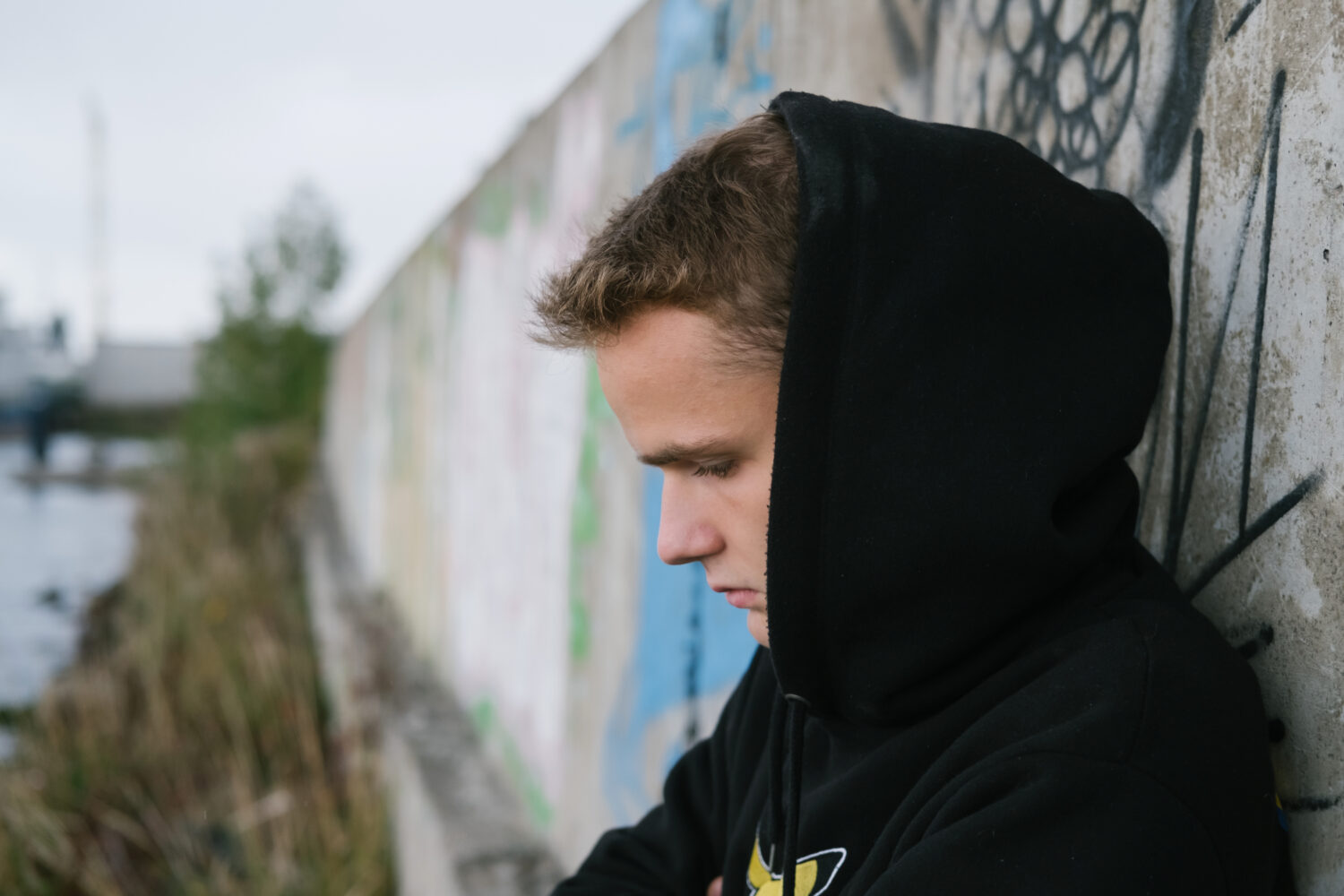Domestic violence
Domestic violence comes in many shapes and forms. Sometimes, this can affect you too, as a child or young person. We want to do everything we can to make sure you feel safe again.
Who is to blame?
It’s important to understand that child abuse is never your fault. Most parents don’t really want to cause their children any pain or suffering. But sometimes, things go wrong. If your parents get divorced and argue a lot, or if there is violence at your home, you can be affected too.
It is not okay!
On our pages about domestic violence, you will find more information about the different forms of domestic violence and child abuse. This varies, for example, from physical abuse and neglect to psychological violence. If violence in your family happens often, or if your parents argue a lot with each other, you can be affected by this. None of these forms of violence are okay. If you are affected by this, we would really like to help you make things better for you again. No matter how difficult you think this may be. You’re not alone!
What if you use violence yourself?
Even young persons like yourself can cross a certain border. For example, if you are violent towards your parents or step-parents or guardians. This is also known as child-parent abuse. Talking about it is a good thing, even if you’re the abuser, because the violence doesn’t stop by itself and it is important that you and your family receive help.
Are you not sure?
If you are unsure whether your experiences are classed as domestic violence, but you are not comfortable with the situation, or maybe you feel unsafe, then talk about it. If you want to talk about what’s happening at home, you can always call or chat with us.
Special forms of violence
You as a child or young person can also be affected by specific forms of violence.
- For example, if violence is committed because your family doesn’t agree with certain choices or behaviour (honour-related violence).
- Or if you are forced to marry someone (forced marriage).
- Children or young persons are sometimes left abroad, against their will, while they were made to believe that they were going on holiday or visiting relatives (forced abandonment).
- Girls can be victims of female circumcision (female genital mutilation). Or they are forced to have sex or work in the sex industry. This can happen to boys too.

What happens when I call?
- We listen to your story
- You get advice
- We will look for help together
CALL (FREE)
0800-2000
You can contact us 7 days a week, 24 hours a day (for free).
What can you do?
Talk about it!
If you are experiencing domestic violence yourself, or if you are worried about someone else, it is important to talk to someone close to you. Even when other people tell you not to talk about it. It is very important that you find help and don’t have to continue to struggle by yourself.
By talking about it, you can share how you are doing. Any problems will become clear as well as if help is needed. Often more people are willing to provide help than you might think.
And the sooner help comes, the better.
Is it difficult to share your experience(s)?
If you are afraid to talk to an adult, you may want to talk to someone your own age. A friend, the girl next door or a classmate you trust. Whatever is best for you. Once you have taken that first step, you will find that getting things off your chest feels good. This could encourage you to talk to an adult, such as someone at school, a neighbour or an uncle or aunt.
In addition to opening up to this person, you can also ask if he or she will come along with you to your General Practitioner.
Talking to Safe Home
You can always call Safe Home (0800-2000, 24/7) or chat with us (until 5 pm). We want to give you the opportunity to tell us what is bothering you. Everything you tell us will help us find out how we can help you. We take notes of what you say. Not everyone is allowed to read that. If we can help you, we will try to find a solution. We will discuss the solution we are thinking of with you and your parents. Usually, we look for help for you and your parents. So that they can take good care of you again.
Children’s Helpline / Everything Oké?
You can also chat or call the Children’s Helpline (telephone number: 0800-0432). You will talk to people who are trained to help children. If you call or chat with them, they ask you questions and try to help you in such a way that you can actually come up with a solution yourself.
Young people between the ages of 18 and 24 can call or chat with ‘Everything Oké?’ This is a Support Line and can be reached by telephone (0800-0450) or via their website https://www.allesoke.nl/
You can call the Children’s Helpline to talk about anything. It’s free and easy! Go to chat at kindertelefoon.nl or call 0800-0432.

